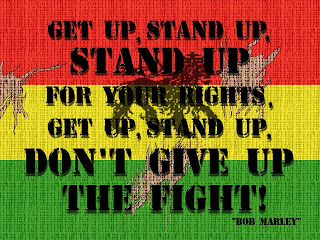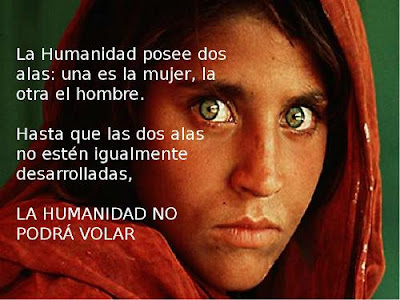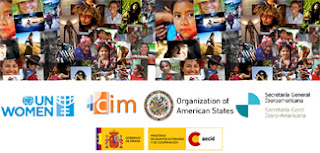| Educación Inicial |
|
| Educación General Básica |
|
| Educación Polimodal |
|
| Educación Superior |
|
| Educación Cuaternaria |
|
| Regímenes Especiales |
|
LENGUAS EXTRNJERAS - ASIGNATURA DERECHO
WELCOME TO MY BLOG OF ENGLISH
Aquí compartiré los trabajos solicitados por la docente de la Asigntura de Lenguas extranjeras del "Instituto de Profesores Artigas" de 4º Año Asignatura Derecho.-
jueves, 6 de octubre de 2011
Argentine education system
Identify the function of these words in the text as verb(v), adjetive(a) or noun(n)
- social - A
- steps - N
- include -V
- unemplyment - N
favourable -A
- steps - N
- include -V
- unemplyment - N
favourable -A
Activity 3: Read the text and find.
a. A synonym with adequate -
b. A synonym with liberty - free
c. The opposite of employment - unemployment
d. A human right - to free choice of employment
e.A feeling - safe
b. A synonym with liberty - free
c. The opposite of employment - unemployment
d. A human right - to free choice of employment
e.A feeling - safe
Activity of Declaration of Human Rights
2. a) In my opinion, the Declaration of Human Rights recognizes the right to free choice of employment. I know that in fact many people have accessed the means to effectively exercise that right, but I think it is important that from the states to recognize such rights making it necessary to implement policies and guarantees which are designed to achieve the same .
b) es, in my opinion is very important that people who do not have defined his vocation, can access guidance and information about various academic careers, jobs, job placement opportunities, in whole and by people prepared to do so, to the effect that can really make a decision in a conscious and reflective, since it will affect not only their future work, but personal.
c) Yes, the right to work is part of a major human rights because it involves not only the power to perform an activity freely chosen by the person who is unpaid, which is carried out under safe and hygienic conditions, with working hours limited, and according to their abilities, are all included in the right to a decent life, that allows the individual not only meet their basic needs but also able to perform as a person.
b) es, in my opinion is very important that people who do not have defined his vocation, can access guidance and information about various academic careers, jobs, job placement opportunities, in whole and by people prepared to do so, to the effect that can really make a decision in a conscious and reflective, since it will affect not only their future work, but personal.
c) Yes, the right to work is part of a major human rights because it involves not only the power to perform an activity freely chosen by the person who is unpaid, which is carried out under safe and hygienic conditions, with working hours limited, and according to their abilities, are all included in the right to a decent life, that allows the individual not only meet their basic needs but also able to perform as a person.
miércoles, 28 de septiembre de 2011
BOB MARLEY AND HUMAN´S RIGTS
Amnesty International has used the song "Get up stand up" in any campaign.
Bob Marley (1945-1981) was a Jamaican musician and follower of Rastafarianism, a religious movement and sociopolitical advocacy of Pan-Africanism (based on the vindication of the rights of Africans or of African origin). The center of Rastafarianism is in some Caribbean countries like Trinidad and Tobago, Dominica and Grenada, Jamaica as well.
Bob Marley is the most famous reggae singer, Jamaican music representative of Rastafarianism. Reggae was the result of the influence of soul on the ska, which in turn was the result of the fusion of Jamaican folk music, rhythm & blues and American jazz.
The lyrics of "Get Up Stand Up" is a clear example of the overall militant position Rastafarianism and Bob Marley in particular.
Rastafarianism has been the subject of some controversy, as some Jamaican musicians have openly homophobic statements (in most Latin American countries homosexuality is not criminalized, but nevertheless still significant homophobic attitudes, entrenched religious and cultural reasons
Bob Marley (1945-1981) was a Jamaican musician and follower of Rastafarianism, a religious movement and sociopolitical advocacy of Pan-Africanism (based on the vindication of the rights of Africans or of African origin). The center of Rastafarianism is in some Caribbean countries like Trinidad and Tobago, Dominica and Grenada, Jamaica as well.
Bob Marley is the most famous reggae singer, Jamaican music representative of Rastafarianism. Reggae was the result of the influence of soul on the ska, which in turn was the result of the fusion of Jamaican folk music, rhythm & blues and American jazz.
The lyrics of "Get Up Stand Up" is a clear example of the overall militant position Rastafarianism and Bob Marley in particular.
Rastafarianism has been the subject of some controversy, as some Jamaican musicians have openly homophobic statements (in most Latin American countries homosexuality is not criminalized, but nevertheless still significant homophobic attitudes, entrenched religious and cultural reasons
Get up, stand up
Stand up for your rights
Get up, stand up
Stand up for your rights
Get up, stand up
Stand up for your rights
Get up, stand up
Don't give up the fight
Preacher man don't tell me
Heaven is under the earth
know you don't know
What life is really worth
It's not at all that glitters is gold
Half the story has never been told
So now you see the light
Stand up for your rights
Get up, stand up
Stand up for your rights
Get up, stand up
Stand up for your rights
Get up, stand up
Stand up for your rights
Get up, stand up
Don't give up the fight
Most people think
Great good will come from the skies
Take away everything
And make everybody feel high
But if you know what life is worth
You would look for yours on earth
And now you've seen the light
You stand up far your rights
Get up, stand up (Yeah Yeah)
Stand up for your rights (Oh)
Get up, stand up (Get up, stand up)
Don't give up the fight (Life is your right)
Get up, stand up (So we can't give up the fight)
Stand up for your rights (Lord Lord)
Get up, stand up (People struggling on)
Don't give up the fight (yeah)
We're sick and tired of your easing kissing game
To die and go to heaven in Jesus' name
We know and understand
Almighty God is a living man
You can fool some people sometimes
But you can't fool all the people all the time
And now we've seen the light (What you gonna do)
We gonna stand up for our rights
Get up, stand up - Stand up for your rights
Get up, stand up - Stand up for your right
Get up, stand up - Stand up for your rights
Get up, stand up
Don't give up the fight
Stand up for your rights
Get up, stand up
Stand up for your rights
Get up, stand up
Stand up for your rights
Get up, stand up
Don't give up the fight
Preacher man don't tell me
Heaven is under the earth
know you don't know
What life is really worth
It's not at all that glitters is gold
Half the story has never been told
So now you see the light
Stand up for your rights
Get up, stand up
Stand up for your rights
Get up, stand up
Stand up for your rights
Get up, stand up
Stand up for your rights
Get up, stand up
Don't give up the fight
Most people think
Great good will come from the skies
Take away everything
And make everybody feel high
But if you know what life is worth
You would look for yours on earth
And now you've seen the light
You stand up far your rights
Get up, stand up (Yeah Yeah)
Stand up for your rights (Oh)
Get up, stand up (Get up, stand up)
Don't give up the fight (Life is your right)
Get up, stand up (So we can't give up the fight)
Stand up for your rights (Lord Lord)
Get up, stand up (People struggling on)
Don't give up the fight (yeah)
We're sick and tired of your easing kissing game
To die and go to heaven in Jesus' name
We know and understand
Almighty God is a living man
You can fool some people sometimes
But you can't fool all the people all the time
And now we've seen the light (What you gonna do)
We gonna stand up for our rights
Get up, stand up - Stand up for your rights
Get up, stand up - Stand up for your right
Get up, stand up - Stand up for your rights
Get up, stand up
Don't give up the fight
What we mean by cultural rights?:
Cultural Rights are rights related to art and culture, both understood in a large sense. The objective of these rights is to guarantee that people and communities have an access to culture and can participate in the culture of their election. Cultural rights are human rights that aim at assuring the enjoyment of culture and its components in conditions of equality, human dignity and non-discrimination. They are rights related to themes such as language; cultural and artistic production; participation in cultural life; cultural heritage; intellectual property rights; author’s rights; minorities and access to culture, among others.
The Interarts Portal on Cultural Rights, outcome of the Dialogue on Cultural Rights and Human Development in 2004, is designed to increase available information on cultural rights, cultural diversity and cultural indicators of human development.
• to advise in the design of cultural policies,
• to contribute to the processes of development through the cultural sector
• to facilitate the transference of knowledge and information in the field of culture.
With these objectives in mind, INTERARTS is organized in accord with the following:
INTERARTS carries out its activity for public and private entities from its offices in Barcelona and has a wide experience in the development of cultural cooperation projects in the national and international area.
Its principal areas of performance are in the field of cultural policies and cultural co-operation. Today INTERARTS is active among other various innovative fields in those concerned with the cultural rights and with the organization of new creative industries.
It is the foremost aim of INTERARTS to include a cultural element in all projects concerning human development.
"Humanity has two wings: one is the woman and the other is man. Until both wings are equally developed no humanity can not fly. If one wing remain weak, flight is impossible. " (Necane Lauzirika Periodista y Escritora española)
The Interarts Portal on Cultural Rights, outcome of the Dialogue on Cultural Rights and Human Development in 2004, is designed to increase available information on cultural rights, cultural diversity and cultural indicators of human development.
Interarts
Founded in 1995 in Barcelona, INTERARTS is a private agency with international projection, the aim of which is:• to advise in the design of cultural policies,
• to contribute to the processes of development through the cultural sector
• to facilitate the transference of knowledge and information in the field of culture.
With these objectives in mind, INTERARTS is organized in accord with the following:
Design
As a laboratory of ideas and centre of applied investigation, INTERARTS focuses on emergent cultural issues of political relevance and contributes to the elaboration of proposals for the implementation of cultural policies.Consultancy
Culture is a key element in the process of development. It is with this end in mind that INTERARTS coordinates the management of international projects concerned with cooperation for development and acts as consultant in the organization of creative industries.Training and information
Training is one of the core activities of INTERARTS with the organisation of short cycles of thematic seminars and of initiatives such as the international Campus for cultural cooperation, implemented in different geographic areas. Through its bulletin, Cyberkaris, and its website, INTERARTS continuously diffuses studies and information relevant to cultural cooperation.INTERARTS carries out its activity for public and private entities from its offices in Barcelona and has a wide experience in the development of cultural cooperation projects in the national and international area.
Its principal areas of performance are in the field of cultural policies and cultural co-operation. Today INTERARTS is active among other various innovative fields in those concerned with the cultural rights and with the organization of new creative industries.
It is the foremost aim of INTERARTS to include a cultural element in all projects concerning human development.
"Humanity has two wings: one is the woman and the other is man. Until both wings are equally developed no humanity can not fly. If one wing remain weak, flight is impossible. " (Necane Lauzirika Periodista y Escritora española)
NOTICE OF DISCRIMINATION OF WOMAN
25 November 2010: International Day for the Elimination of
Violence against Women
The 11th International Day for the Elimination of Violence against Women was marked by a series of high-level statements and events at UNHQ and around the world.
• In his message for the International Day, Secretary-General, Ban Kimoon,stated:
“This year’s observance highlights the role the business community can play – from developing projects to providing direct financial support to organizations working to end violence and embracing the principles of corporate social responsibility …The word is spreading: violence against women and girls has no place in any society, and impunity for
perpetrators must no longer be tolerated. On this International Day, I urge all – Governments, civil society, the corporate sector, individuals – to take responsibility for eradicating violence against women and girls.“
UN Secretary-General, Ban Ki-moon, 25 November 2010.
• UN Women Executive Director, Michelle Bachelet, delivered a message for the International Day, affirming:
“Stopping violations of women’s human rights is a moral imperative
… Joining in the efforts to stop violence is everybody’s responsibility.
Governments, private enterprises, civil society groups, communities and individual citizens can all make essential contributions. Men and boys must be active in encouraging respect for women and zero tolerance for violence. Cultural and religious leaders can send clear messages about the value of a world free of violence against women.”
UN Women Executive Director, Michelle Bachelet, 25 November 2010.
http://www.unwomen.org/2010/11/to-end-violence-againstwomen- we-must-all-join-together/
• UN High Commissioner for Human Rights, Navi Pillay, and UNFPA
Executive Director, Thoraya Ahmed Obaid, also delivered messages for
the International Day, available respectively at:
http://www.ohchr.org/EN/NewsEvents/Pages/DisplayNews.
aspx?NewsID=10560&LangID=E
http://www.unfpa.org/public/home/news/pid/6951
• Official observance at UNHQ of the International Day for the
Elimination of Violence against Women, “Leadership of the Corporate
Sector in Ending Violence against Women and Girls”, 23 November
2010. Speakers included UN Women Executive Director, Michelle
Bachelet, H.E. Joseph Goddard, Permanent Representative of Barbados
to the United Nations, and Debi Nova, grammy award nomine and
artist from Costa Rica. In his keynote address, UN Secretary-General
Ban Ki-moon stressed how corporate executives are finding new ways to address violence against women and welcomed those initiatives. A panel discussion was moderated by Ms. Juju Chang of ABC News and included Ms. Margery Kraus, Chief Executive Officer, APCO Worldwide, Ms. Sharon D’ Agostino, Vice-President, Corporate Contributions,
Johnson & Johnson, and Ms. Shupe Makashinyi, Equality Now,
Zambia.
http://www.un.org/News/briefings/docs/2010/101123_Women.doc.htm
http://www.unifem.org/news_events/event_detail.php?EventID=360
Suscribirse a:
Entradas (Atom)


